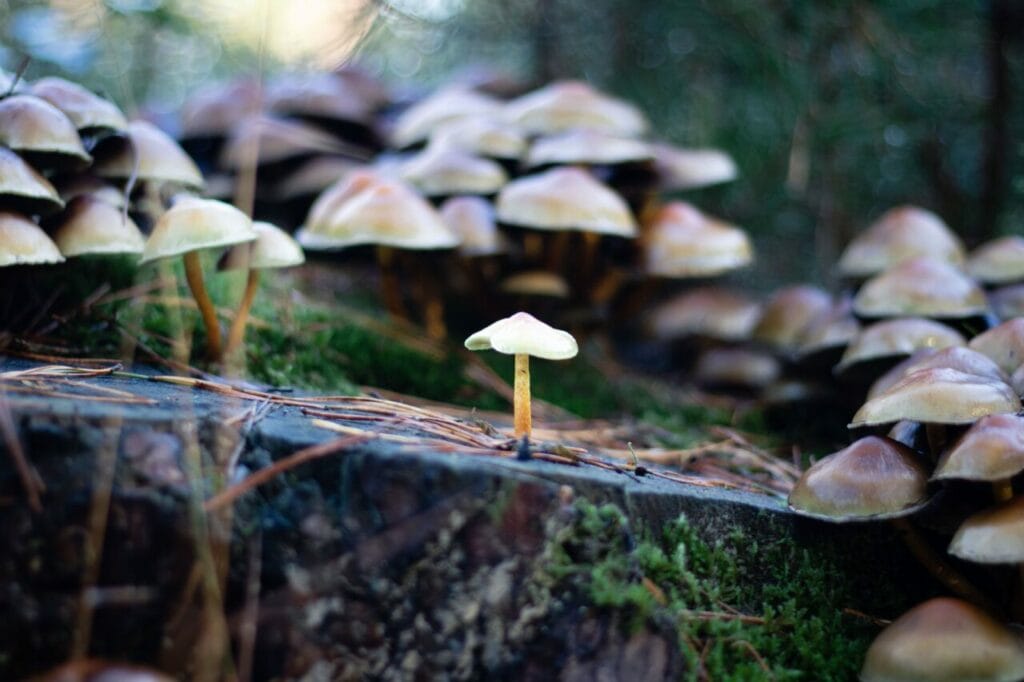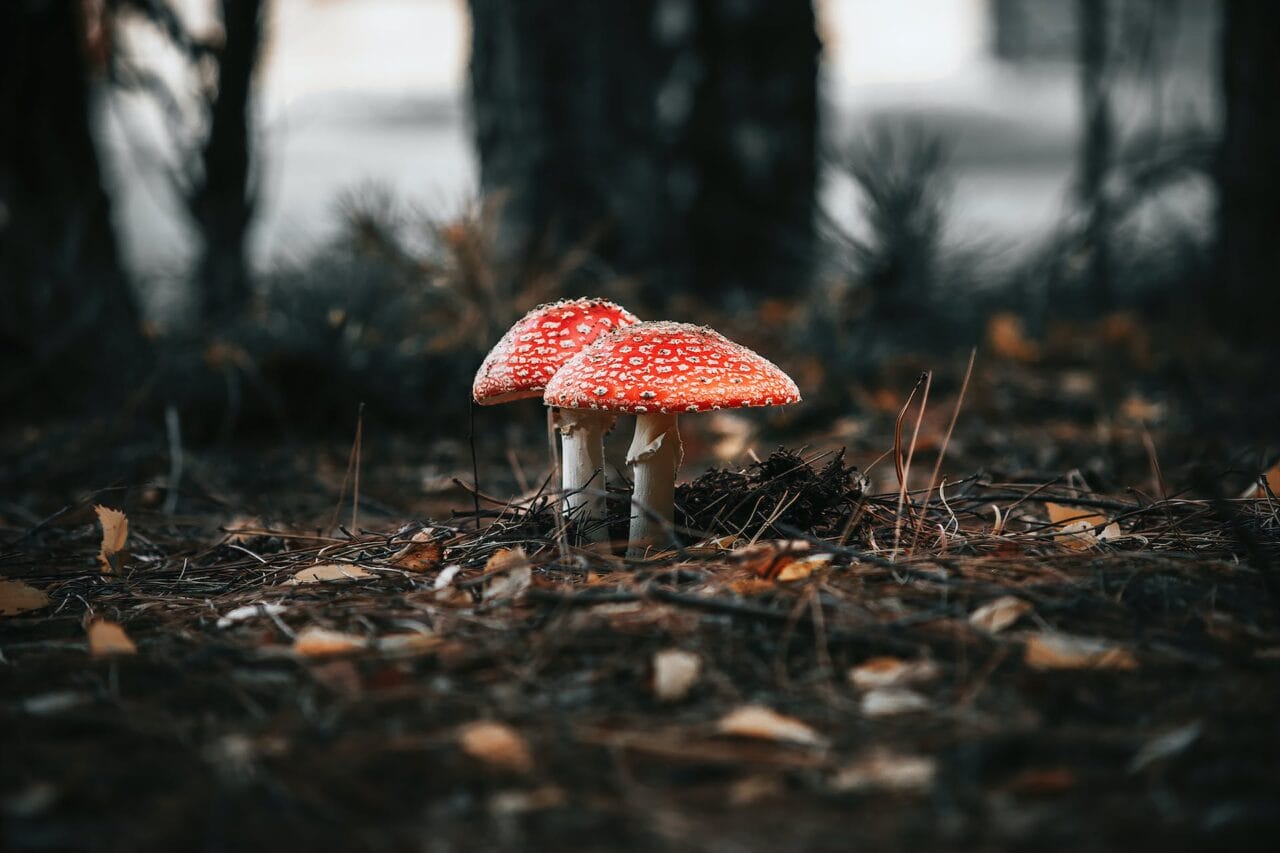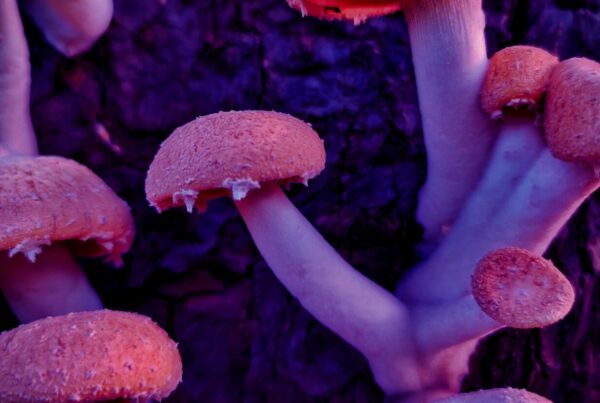There’s a growing intrigue around psilocybin, driven by research into its potential advantages for mental health issues such as anxiety and addiction. Nonetheless, despite this increased curiosity, acquisition of psilocybin remains challenging. The number of labs and shroom delivery services offering magic mushrooms is limited, and the expenses can be substantial.
This piece will discuss the development of psilocybin, its current status, and the potential benefits it could provide to those in search of relief.
[toc]Main Takeaways:
- Growing mushrooms requires considerable effort and careful monitoring to avoid contamination during the inoculation stage.
- Psilocybin triggers a psychedelic experience by interacting with various brain areas, specifically the serotonin receptors.
- Consequently, psilocybin merely causes a slight increase in heart rate, which normalizes shortly after ingestion, without typically causing any other negative effects.

Delivering Only Top-Quality Magic Mushrooms
Magic mushrooms naturally thrive in various environments like manure-rich fields, leaf-laden temperate forests, grasslands, and woods. People have historically ventured into these spots to collect these fungi for medicinal purposes or for use in spiritual and religious rites.
Conventional Approach
The traditional practice of mushroom foraging in these natural habitats is now less common. This shift could be due to the rise of alternatives such as cultivation or the availability of online magic mushroom purchases.
Wild mushrooms are generally less potent than their laboratory-grown equivalents, which are carefully cultivated in controlled environments. Furthermore, there’s a risk of unintentionally picking a poisonous species when foraging in the wild.
Contemporary Method
The journey of shroom production starts with the complex process of maturing spores. This method calls for a
The cultivation of mushrooms necessitates considerable time and meticulous attention to detail, ensuring there’s no contamination during the inoculation stage. Once the mushrooms are ripe and ready for harvest, they are typically dried by labs or cultivators to increase their shelf life. Fresh mushrooms only have a lifespan of a few days, whereas dried ones can be stored for an extended period, often reaching up to a year.
Manufacturers process dried mushrooms into various forms, such as microdose capsules, edibles, tinctures, and beverages. These products are then distributed across Canada through magic mushroom delivery services.
Capitalizing on the Benefits of Psilocybe Cubensis or Magic Mushrooms
A primary reason for conducting clinical trials on mushrooms is to examine their impact on mental health and mood disorders, based on anecdotal evidence. There is a plethora of studies exploring these effects, from microdosing with capsules to immersive mushroom experiences using dried mushrooms or chocolate edibles.
Upon consumption, psilocybin is metabolized into psilocin, a compound that mimics serotonin, a neurotransmitter crucial to mood regulation. It interacts with various brain areas, particularly the serotonin receptors, to initiate a psychedelic journey.
Those undergoing psilocybin therapy often report significant changes that extend beyond heightened senses and visual modifications. These experiences can trigger a substantial shift in self-perception and a deep-seated change in personal perspective, often marked by profound revelations.
Depression and Suicidal Tendencies
A study published in the Journal of Psychopharmacology explored the effects of a psychedelic experience on individuals grappling with depression and suicidal thoughts. Most participants deemed their encounter with psilocybin as highly meaningful and underscored its potential influence on their lives. Such high levels of satisfaction could potentially boost the effectiveness of mental health interventions, underscoring the importance of patient engagement.
Safety Profile
In addition to examining the effects of psilocybin on depression and anxiety, researchers also probe into the safety profile of this substance. A study in JAMA Psychiatry indicated that participants who consumed psilocybin experienced a slight increase in heart rate and blood pressure two hours post-ingestion. However, further analysis using Holter monitoring revealed no significant increase in the risk of cardiac arrhythmias in the psilocybin group compared to the niacin group. The study also discovered
Users did not experience any substantial psychological distress.





